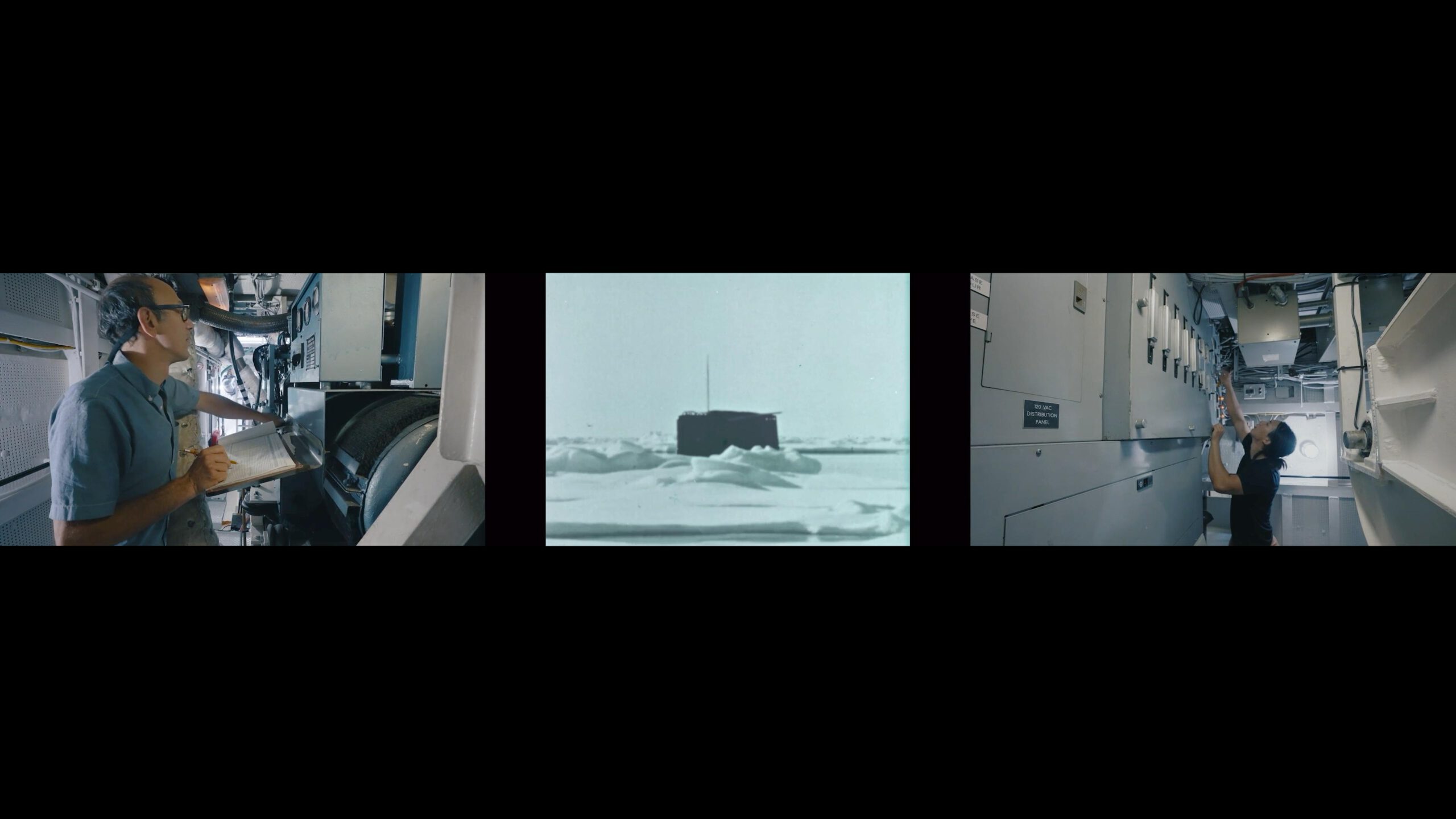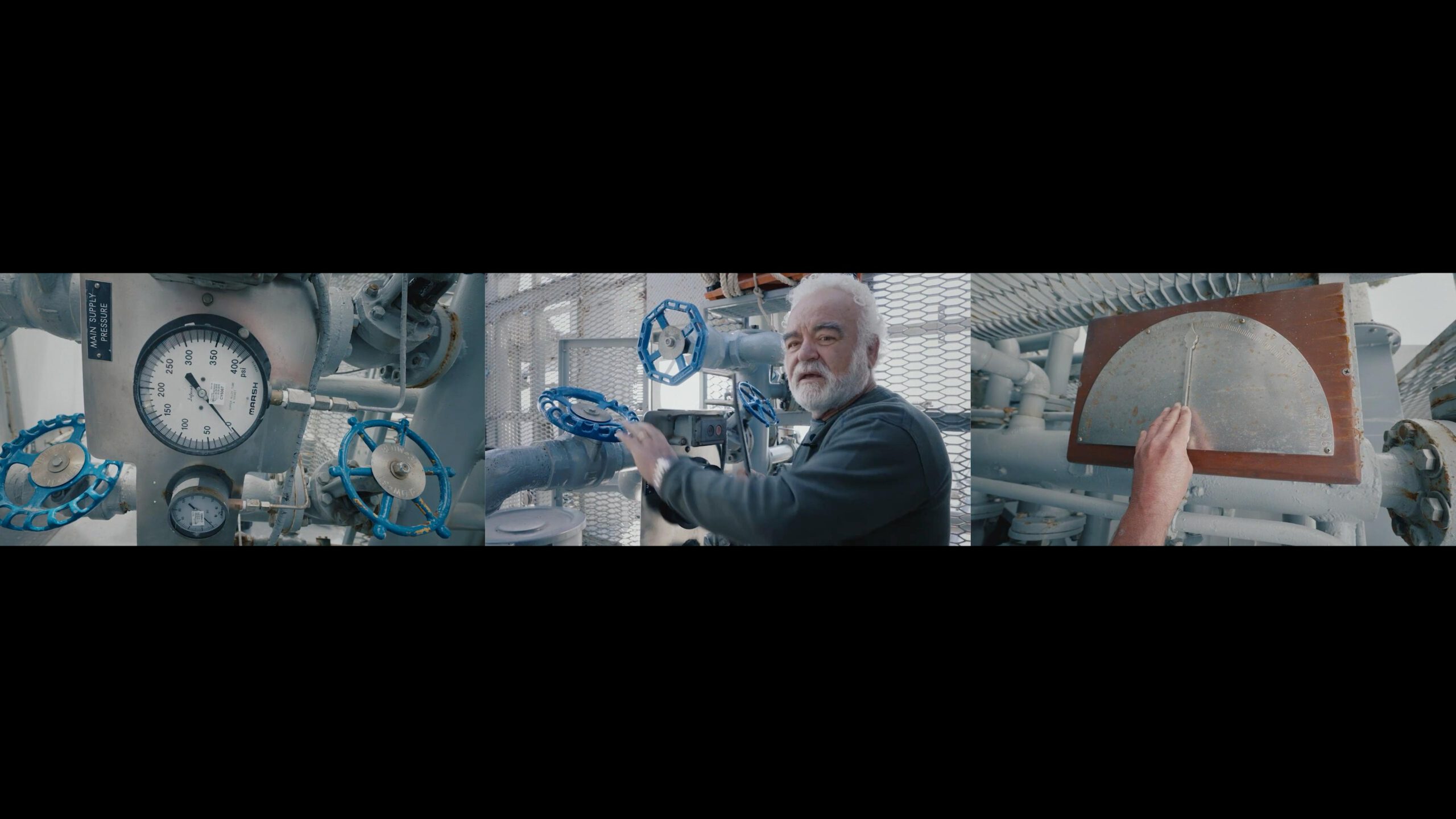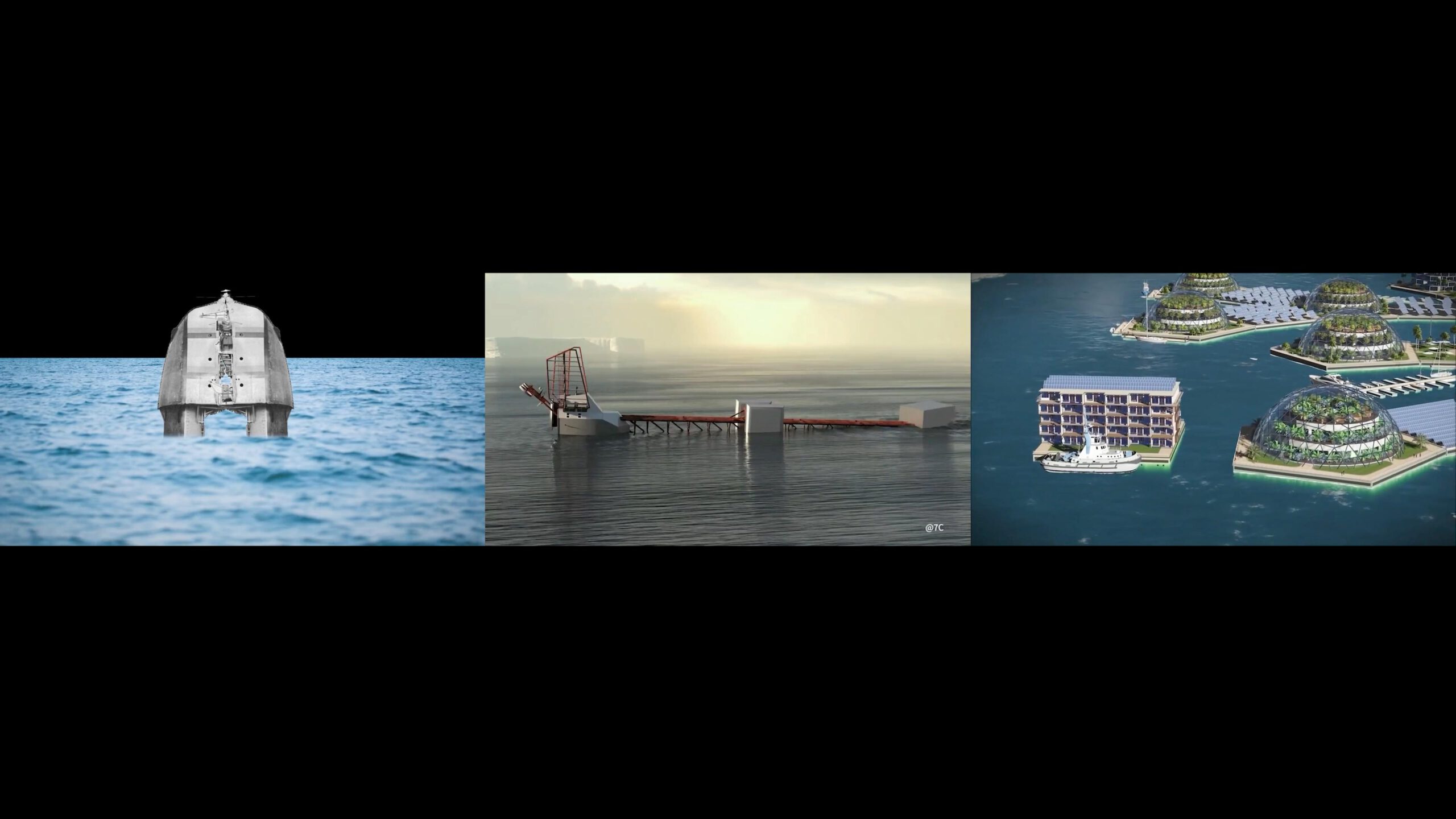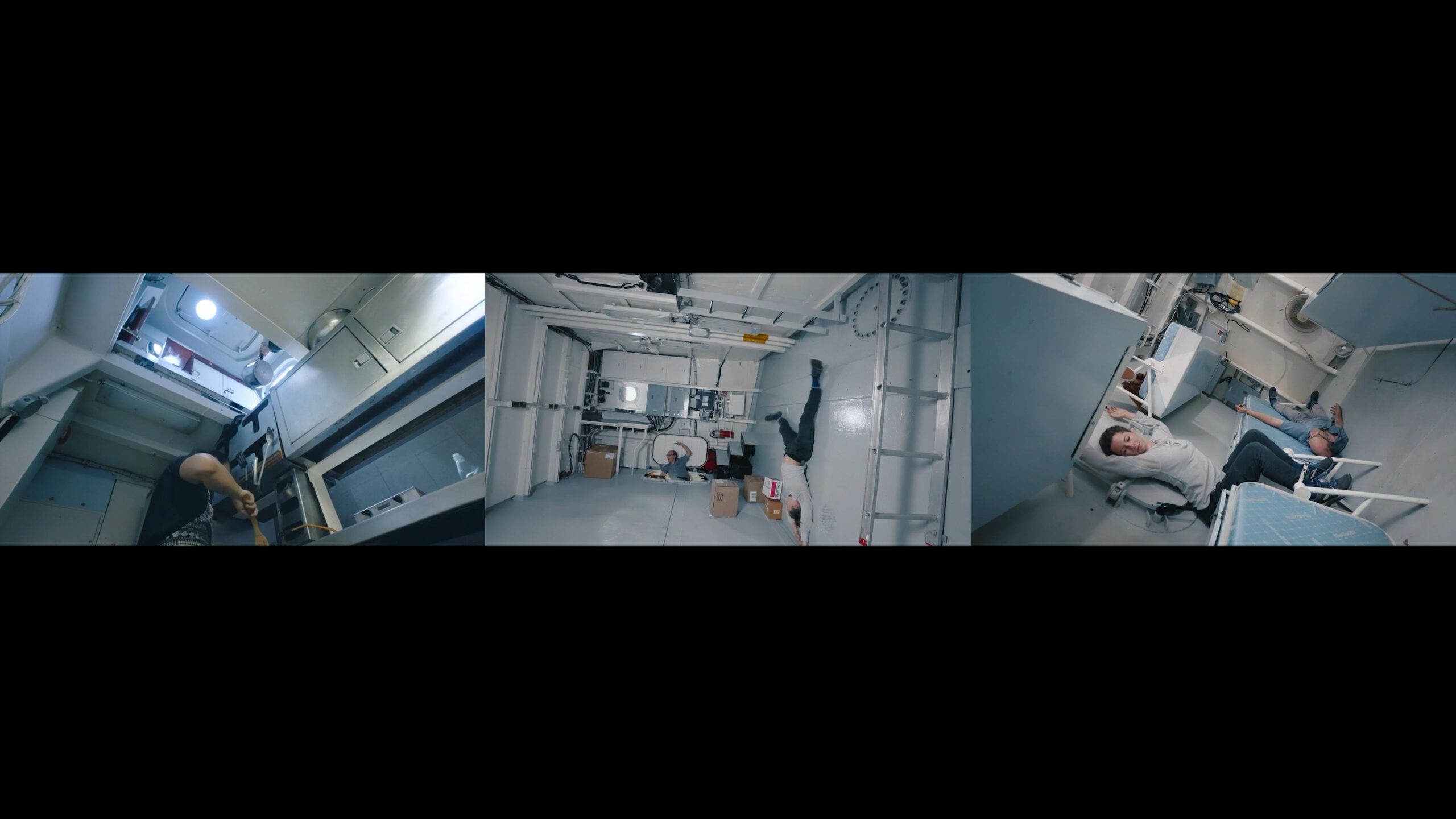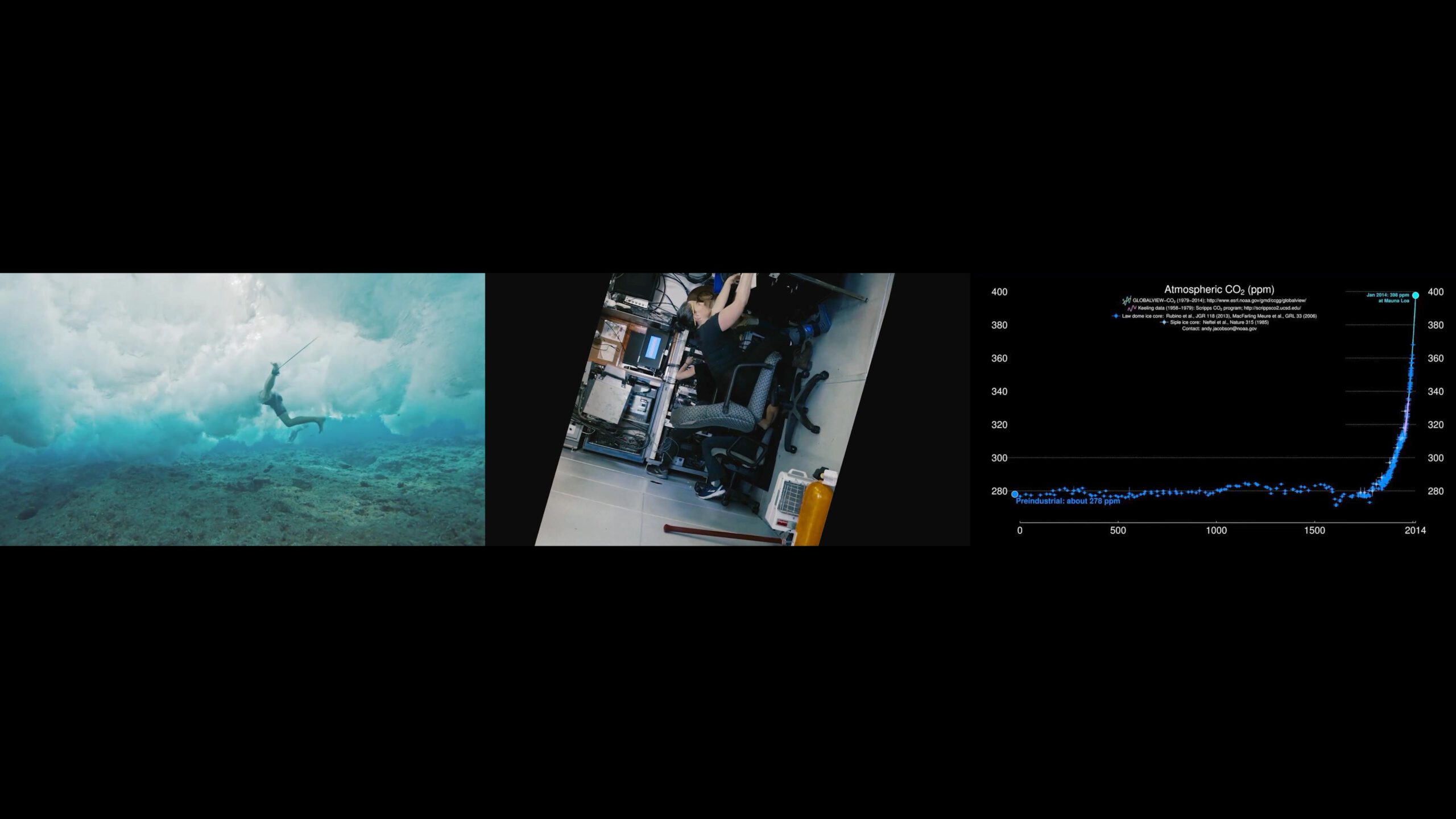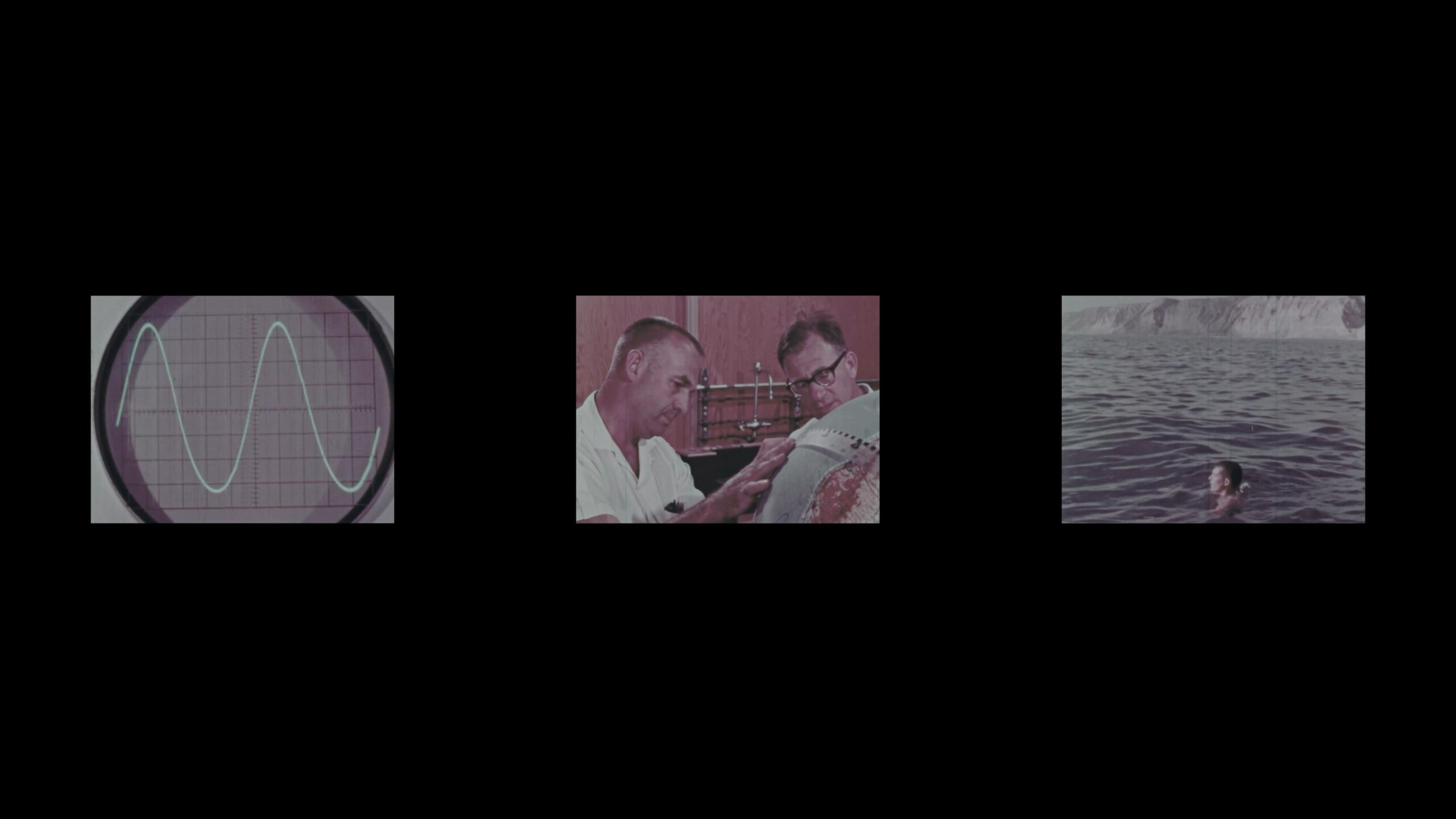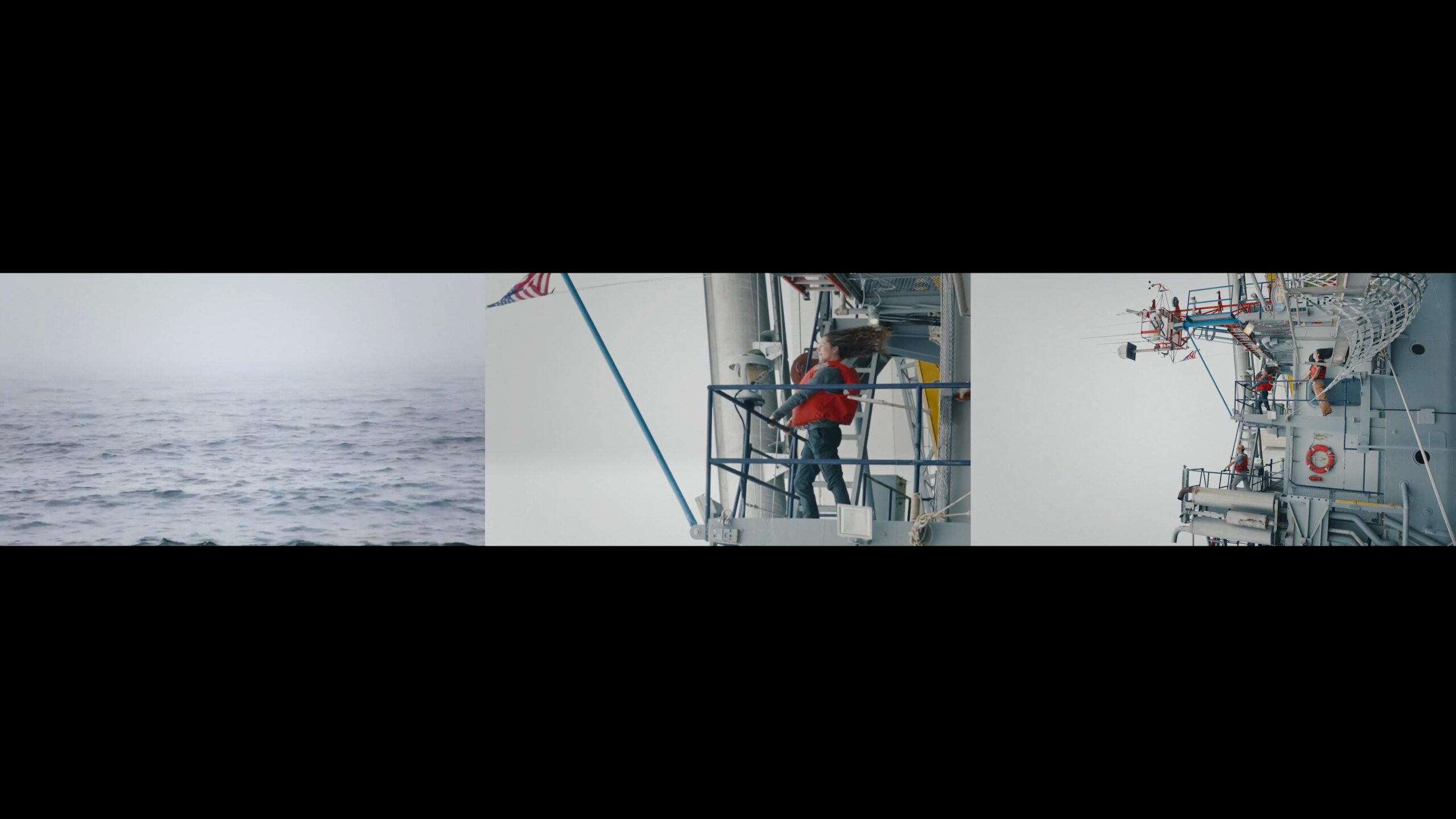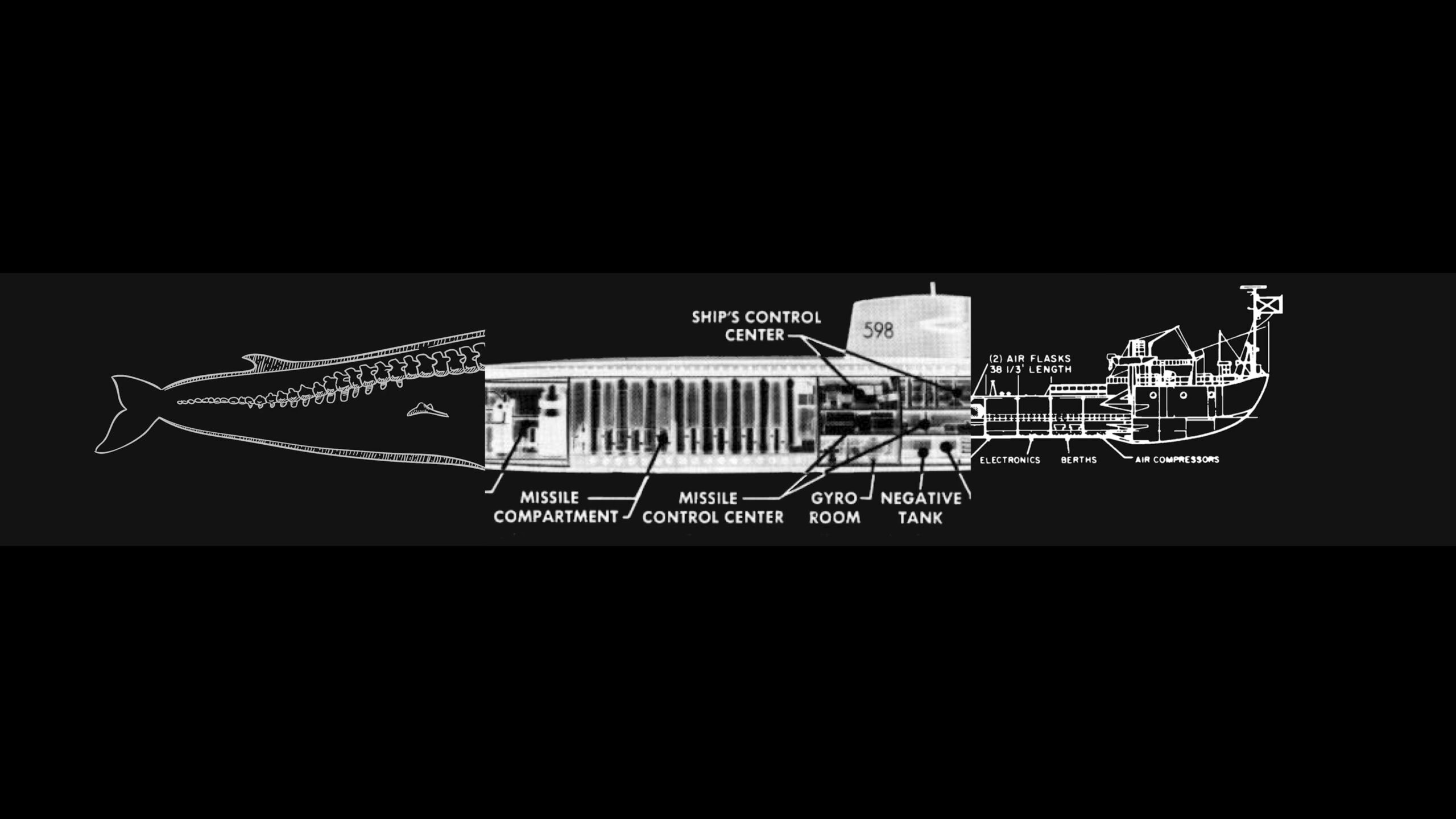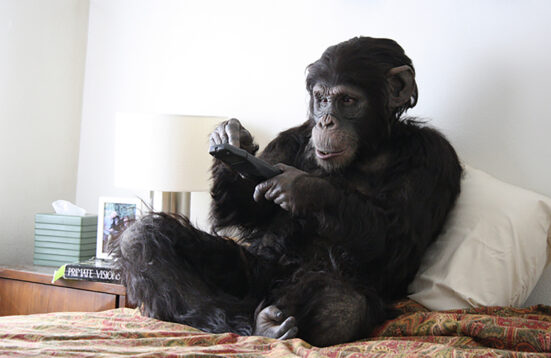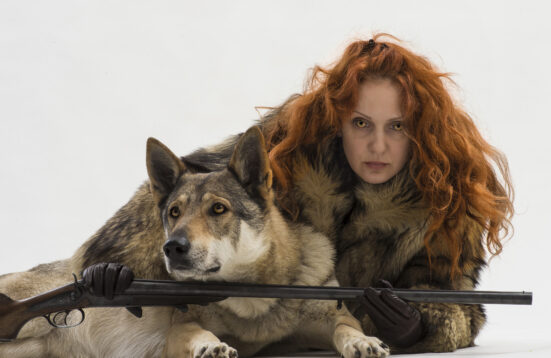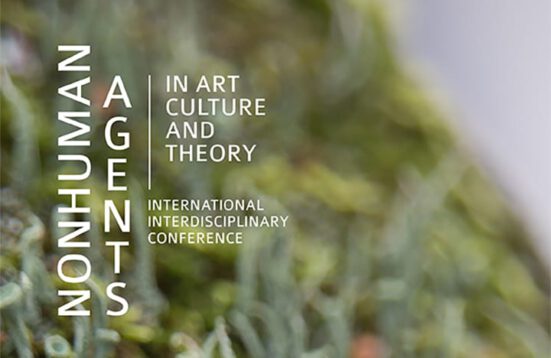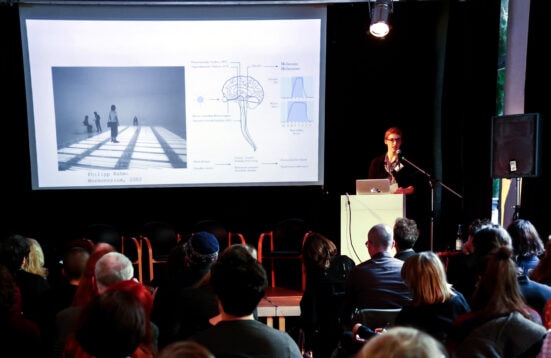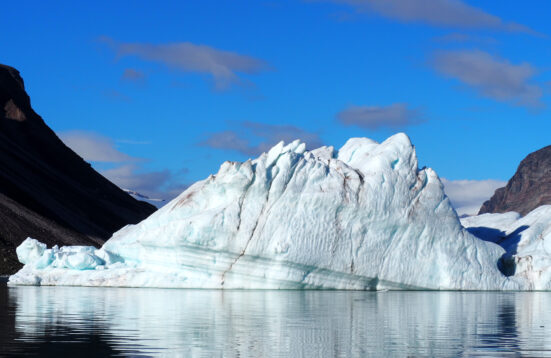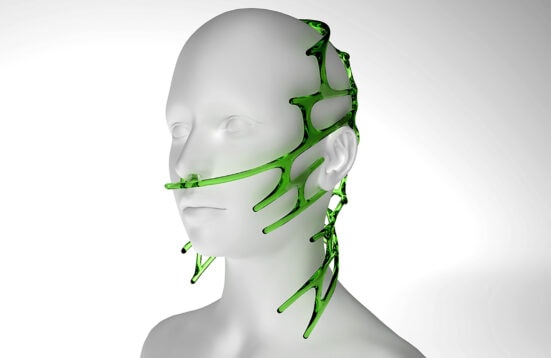CAPSIZE CHRONICLES
Art, Science, and the Oceanic World
Rachel Mayeri
Art Laboratory Berlin invites the audience to meet Los Angeles based artist Rachel Mayeri and her newest artwork R/P FLIP R.I.P., with its European premiere in this solo exhibition. Join us for the Berlin opening on Fri, 26 September. Earlier on the same evening there will be a public EXHIBITION TALK (7 pm, on-site) with the artist and cognitive scientist Deborah Forster about their collaboration on this new work. Soon there will be a COLLOQUIUM (online) with Rachel Mayeri and anthropologist Stefan Helmreich.
R/P FLIP R.I.P. (2024, 11:31 min) is an experimental new video work by Rachel Mayeri about the R/P FLIP, which stands for Research Platform FLoating Instrument Platform (1962-2023), the world-famous nautical rarity that flips 90 degrees to become a live-in buoy for studying the ocean. The FLIP was designed for stability to study acoustics in a turbulent ocean, yet ironically the interior is fluid, built for living both in horizontal and vertical orientations. In the artwork, performers activate the FLIP’s architecture as a playground for disorientation: floors become walls, and doors become holes. Intercut with military and oceanographic films, the FLIP film becomes a platform for conceptual flips: landlubbers encountering the alien world of the ocean, and of oceanography’s shift from militarism to ecology. Commissioned for the Getty-sponsored Southern California landmark show PST Art: Art & Science Collide, created by artist Rachel Mayeri, R/P FLIP R.I P. is currently presented as a three-channel video installation at the Birch Aquarium at Scripps Institute of Oceanography.
Between the 1960s and 1980s, FLIP’s mission made a dramatic flip from military reconnaissance to environmental crisis. FLIP started out as a platform to support anti-submarine echolocation, but by the 1990s had become a tool for understanding the experience of whales in an ocean under siege by human impacts. The unique interior is a space M.C. Escher might envision — designed for living in both horizontal and vertical orientations, there are sinks at right angles, a stove that swivels, and confusing doors, ladders, and portals. Once docked in Point Loma, California, the FLIP was decommissioned in 2020 and towed away for dismantling in 2023.
The key fascination of the FLIP is that the vessel appears to capsize with people on board. To reenact this spectacle, artist Rachel Mayeri directed actors on the FLIP as if the vessel were flipping — without ever leaving port. With the simple trick of rotating the frame, the actors appear to be gravitating toward the walls as the room or ship rolls. These scenes activate the disorientating architecture of the vessel. They also echo the mental gymnastics we go through to prepare for cataclysmic events. The narrative is motivated by the actual procedures of crew and scientists working together to outfit the FLIP for a research voyage, loading and securing scientific instruments, choreographing their movements to each other and the logic of the ship.
More information: https://rachelmayeri.com/flip/
Rachel Mayeri is a Los Angeles-based artist working at the intersection of science and art. Her videos, installations, and writing projects explore topics ranging from the history of special effects to the human animal. Commissioned as part of Getty’s PST Art: Art & Science Collide, she produced a new three-channel video installation called R/P FLIP R.I.P. at the Birch Aquarium at Scripps Institute of Oceanography about a Cold War research vessel built to rotate 90 degrees. In 2006 she began a multi-year exploration of the human-animal continuum called Primate Cinema, often in collaboration with cognitive scientist / anthropologist of robots, Deborah Forster. The series culminated in a major award from The Wellcome Trust. Commissioned by Arts Catalyst, she created a film expressly for chimpanzees – Apes as Family, which subsequently showed at Sundance, Berlinale, Ars Electronica, Art Laboratory Berlin, and Microwave Media Art Festival in Hong Kong. Orfeo Nel Canale Alimentare, an animated opera about the digestive tract, was commissioned by Imagine Science Films and showed at REDCAT Theater in downtown Los Angeles. The Life Cycle of Toxoplasma Gondii is a 29 screen installation about the memetic proliferation of cat videos featured at Pitzer College Art Gallery and the Zombie Apocalypse Medicine Meeting. As a Guest Curator of the Museum of Jurassic Technology she produced the permanent kinetic exhibition on Miracles and Disasters in Renaissance and Baroque Theater. A pioneer in art-science, her projects are featured in books such as Integrative Contemporary Art and Science Practices (Talasek, ed. 2025), The Art-Science Symbiosis (Velasco and Nieto, eds. 2024), and The Routledge Companion to Biology in Art and Architecture (Terranova, ed., 2017). Professor at Harvey Mudd College, she teaches courses such as “Animal Media Studies”, “Nonhuman Media Art”, and “Art & Biology”.

